Oct 17, 2024 – Dinner Reception for Chinese-Korean Elders from Yanbian
Hello. Today is a day to express gratitude to those who helped Good Friends’ activities in China in the late 1990s by inviting them to Korea and holding a gathering to show appreciation for their efforts over the years.
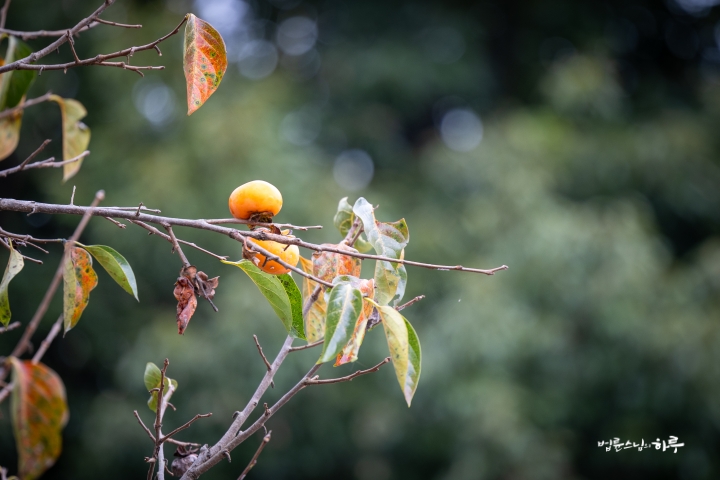
Since the 14th, the Chinese-Korean elders from Yanbian have been guided by Mr. Lee Seung-yong, the director of Good Friends, visiting the Jungto Social and Cultural Center, Gyeongbokgung Palace, Mount Seorak and the East Coast, Mungyeong Jungto Retreat Center and Mungyeong Saejae, Tongdosa and Bulguksa Temple, before heading to Dubuk Retreat Center.
Sunim also left Seoul early in the morning after receiving a regular medical check-up and headed straight to Dubuk Retreat Center at 10:20 AM.
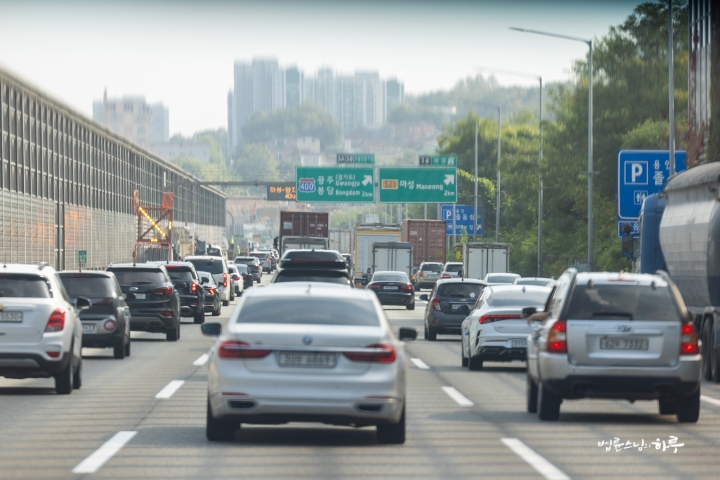
Due to traffic, it took 4 hours and 40 minutes by car, arriving at Dubuk Retreat Center at 3 PM. As the sun was setting, the Chinese-Korean elders from Yanbian also arrived at Dubuk Retreat Center after visiting Bulguksa Temple and Seokguram Grotto.
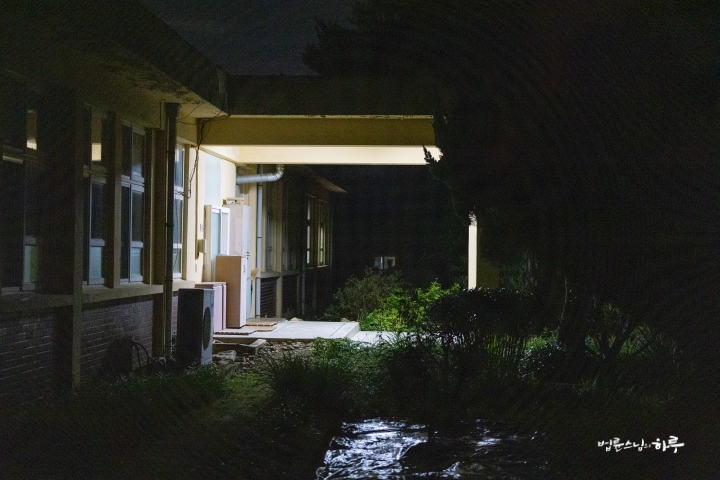
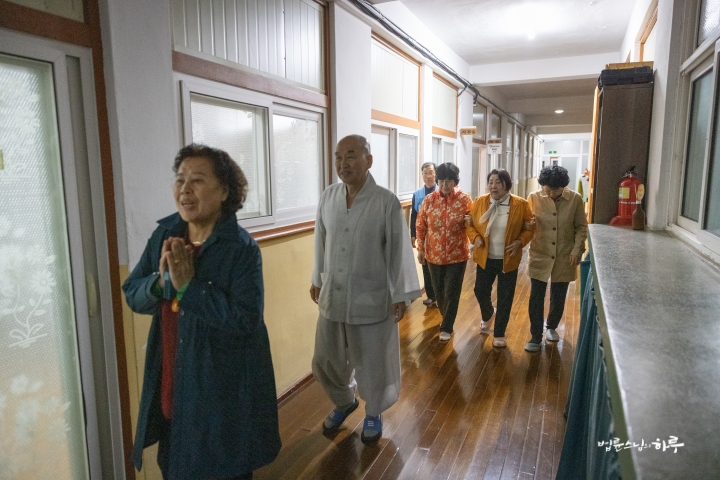
After exchanging warm greetings, they had dinner together. Volunteers from the Suyeong branch of the Busan-Ulsan chapter prepared the meal with great care.
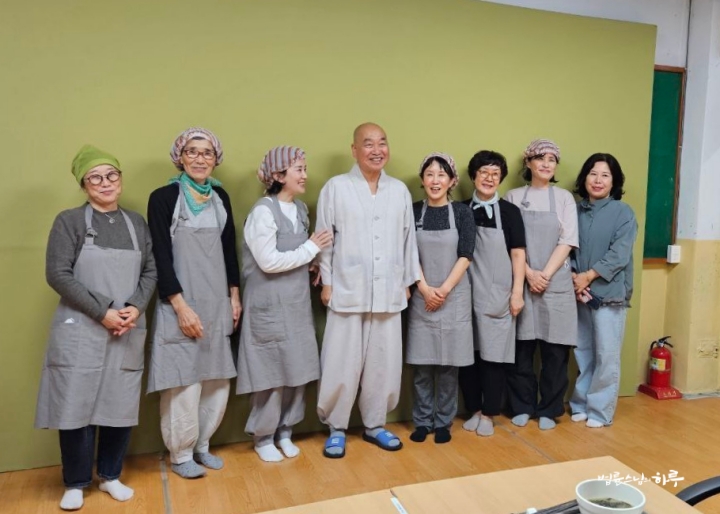
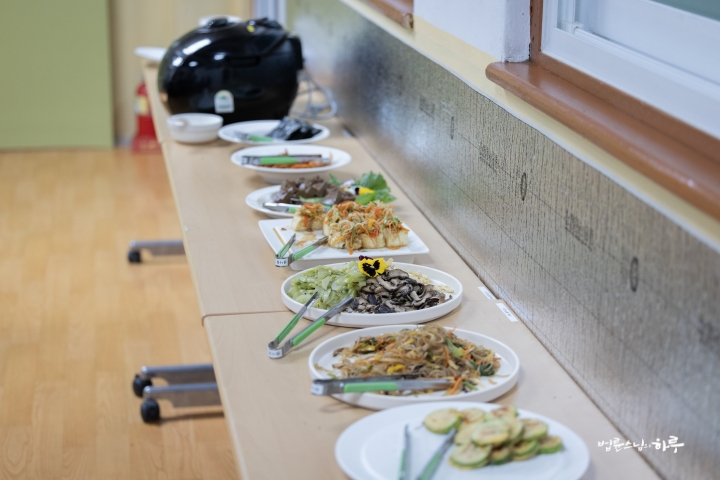
The Chinese-Korean elders expressed their gratitude to the volunteers before starting their meal.
“We will eat with gratitude.”
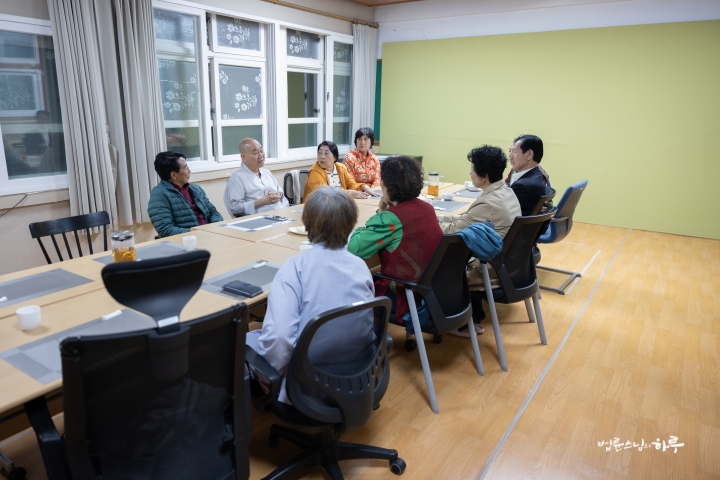
After the meal, Sunim expressed his gratitude to the Chinese-Korean elders for their efforts over the years.
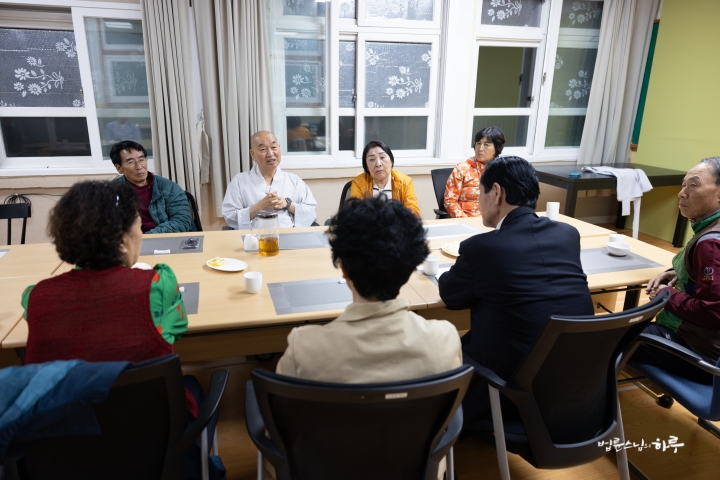
“You organized mutual aid societies to help the struggling Korean-Chinese in Yanbian and provided scholarships to poor children. You also helped many of our compatriots who crossed the river from North Korea due to food shortages. I am truly grateful for your selfless help to our struggling compatriots. I wanted to express my gratitude for a long time, but it kept being postponed due to the COVID-19 pandemic. However, as people started passing away one by one, I couldn’t delay it any longer, so I decided to invite you this year and arranged this gathering today. Thank you once again.”
The elders also expressed their gratitude to Sunim.
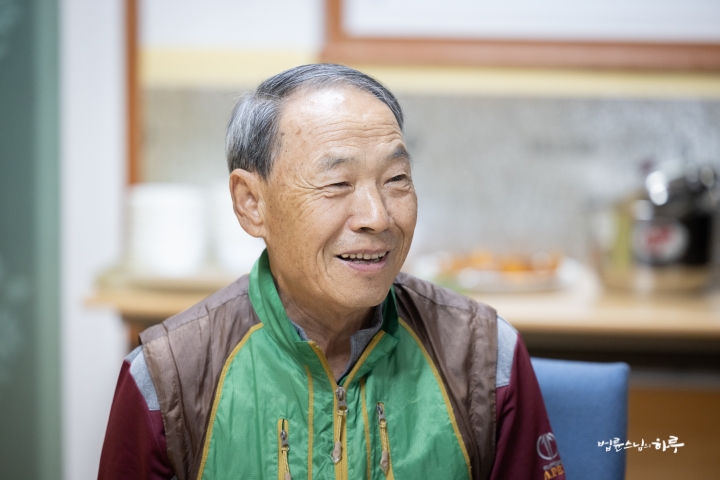
“We are overwhelmed that you haven’t forgotten us and have even shown us around Korea. We cannot repay your kindness, but we must express our gratitude.”
Everyone joined their palms and thanked Sunim.
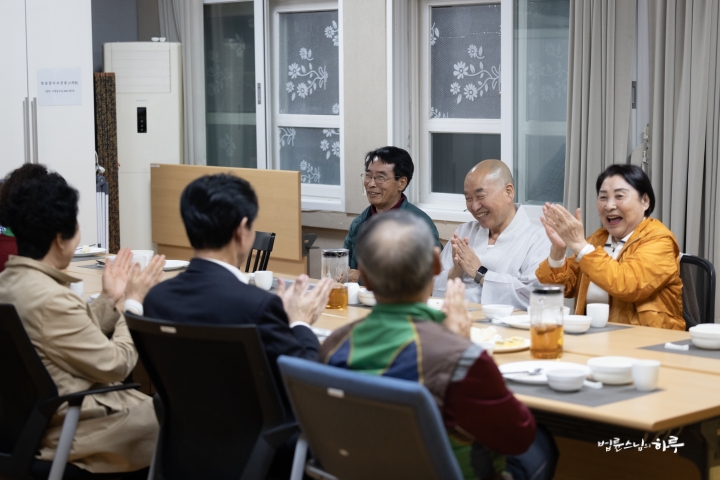
The elders have also made great efforts to resolve the suffering of Korean-Chinese fraud victims. The “Chinese Korean-Chinese fraud” that began to surface in 1996 affected tens of thousands of victims, and it is estimated that one out of every three generations was involved, including families indirectly affected. Those who incurred unmanageable debts were inevitably threatened by creditors, and many victims who couldn’t bear it ultimately chose to commit suicide. The elders formed the “Chinese Korean-Chinese Fraud Victims Association” and made many efforts to help the victims. Sunim also expressed his gratitude for this.
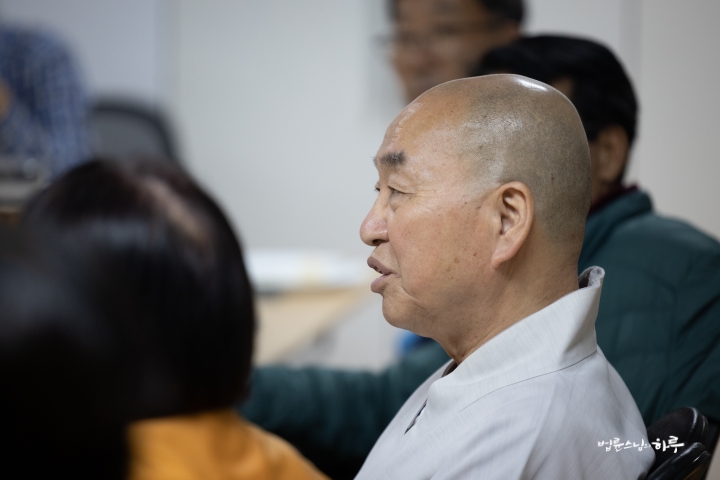
“In my opinion, except for the Japanese colonial period, the suffering experienced by the Korean-Chinese fraud victims was the greatest pain. However, through your efforts and mine, we were able to open doors for Korean-Chinese to come and work in Korea, which to some extent alleviated that pain. I am truly grateful that you didn’t stop there but have consistently carried out activities to help those in need in the Korean-Chinese community.”
“It’s regrettable that six of the people we worked with have already passed away and couldn’t join us.”
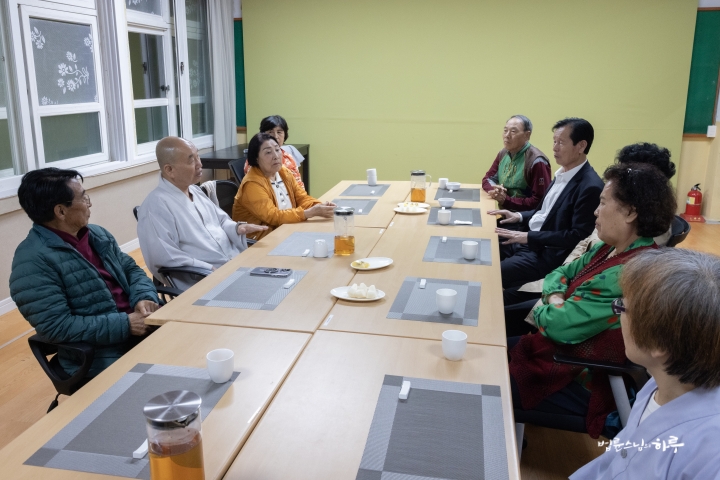
As we talked about the lives of the Korean-Chinese, a considerable amount of time passed.
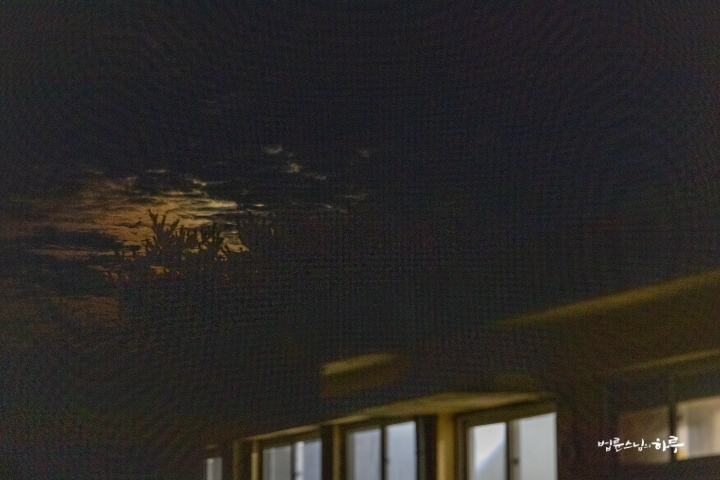
Sunim expressed his regret about the current reality where we cannot provide any support for the recent flood damage in North Korea.
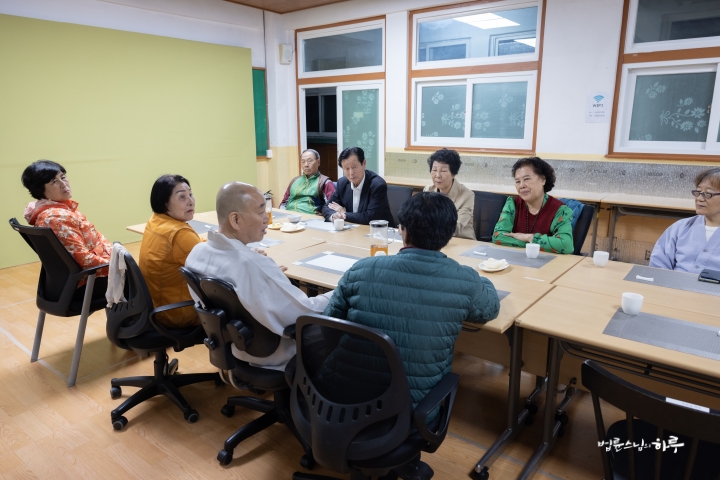
“The recent flood damage in Yanggang Province, Jagang Province, and North Pyongan Province is enormous. The flood damage in 1995 was also incredibly severe, but when combined with the food shortage, people starved to death, and refugees fled to China. That’s why we started helping North Korean compatriots. Coincidentally, the Korean-Chinese fraud incident also occurred at that time, so we began working together to resolve both issues. However, the current flood damage in North Korea is even worse than back then. But because North Korea has stated they won’t accept any support, the North Korean people must be experiencing tremendous difficulties. So, I’m currently looking for ways to provide support.”
“Sunim, you’ve always been thinking about our North Korean compatriots, both then and now.”
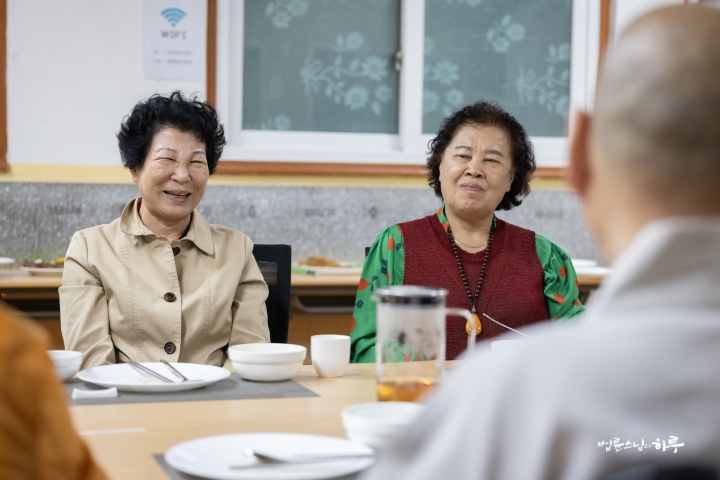
“How was Gyeongju today?”
“We also visited Bunhwangsa Temple, where you became a monk. We heard that at Bunhwangsa, the Great Master Domun scolded Venerable Pomnyun Sunim, saying, ‘Why are you in such a hurry when you don’t even know where you came from or where you’re going?'”
“I’m still busy.” (Laughter)
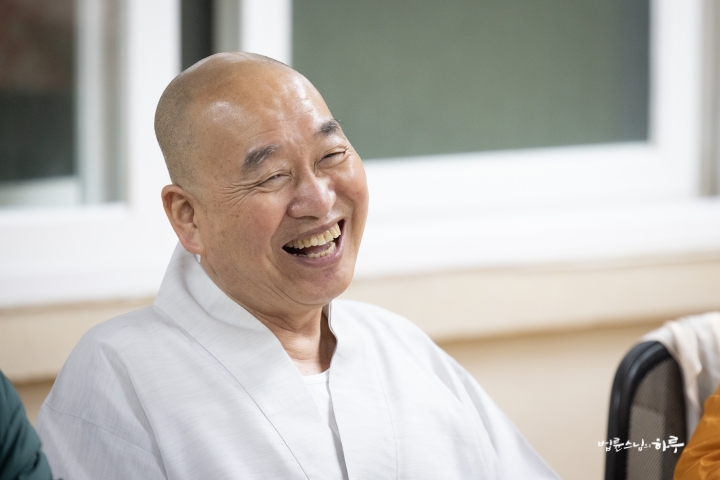
After exchanging greetings and having many conversations, they moved to the Dharma hall to greet the community members living at Dubuk Retreat Center.
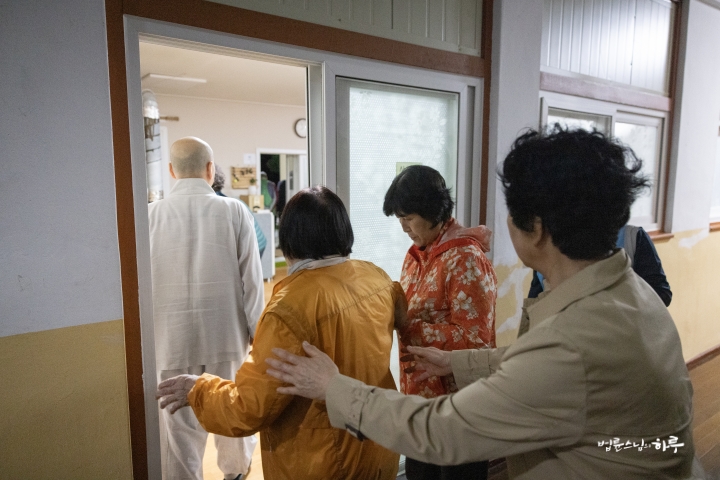
After exchanging greetings with three bows, Sunim introduced each person one by one.
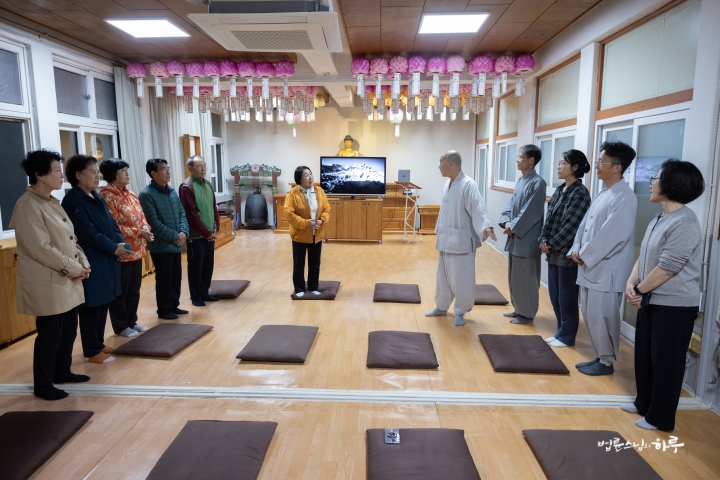
“These people have been living here with me, farming since I came down here during the COVID-19 period.”
“Nice to meet you.”
Then, Sunim briefly introduced what kind of activities he has been doing lately.
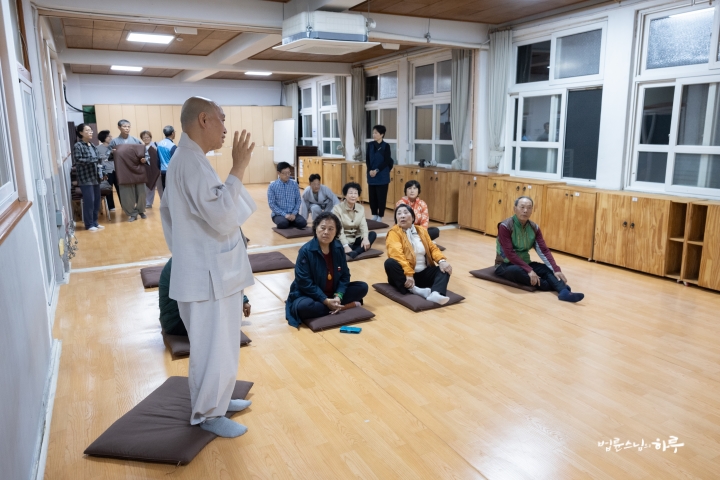
“Last week, I visited the Turkey-Syria border region. There was significant earthquake damage, so we demolished a collapsed school and built a new school for 4,000 students. I travel around the world helping those in need. In Pakistan, we’re helping residents affected by flood damage. In Bhutan, we’re developing villages with the goal of sustainable development. In Cambodia, we built a dormitory for rural girls who come to the city to study. Besides these, we’re helping people in difficulty in various countries such as the Philippines, India, Sri Lanka, Thailand, Myanmar, and Bangladesh.”
We watched a video of Sunim’s activities together.
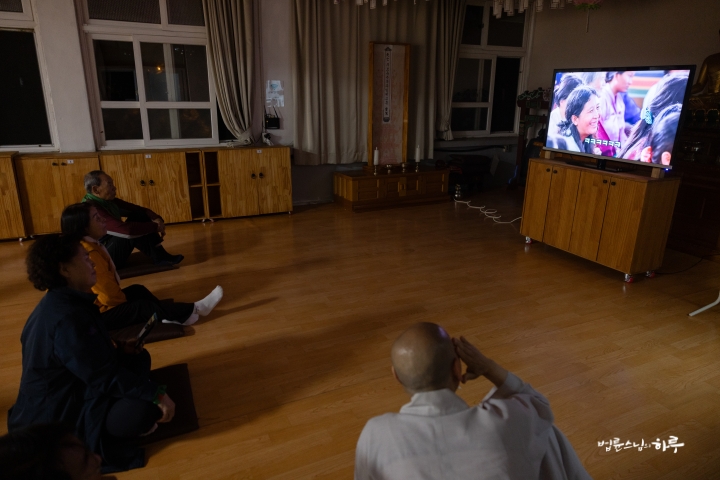
The elders wiped away tears after watching the video.
“You worked so hard to help starving North Korean compatriots back then, and you’re still helping many people in need. Thank you.”
“Go to bed early today. Tomorrow, we’ll spend the whole day together and have conversations.”
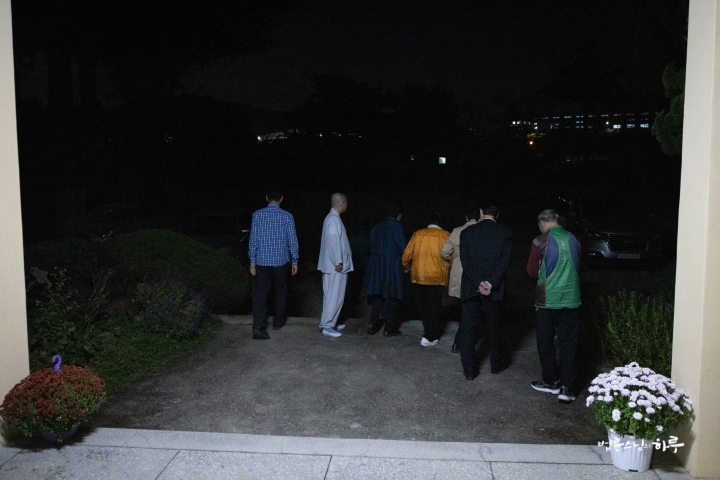
The elders stayed in the recently renovated Dolmen House. Sunim saw them off and ended his day. The full moon was shining brightly in the night sky.

As there was no Dharma talk today, I’ll conclude by introducing the conversation between Sunim and a questioner from the Happy Dialogue Dharma Q&A lecture held in Gwangju on the 4th.
High Prices, High Interest Rates, Minimum Wage Increase… Should I Continue Running My Store?
“The first difficulty for self-employed people in our country is that there are more of them compared to other countries. On top of that, when people hear that a certain type of store is doing well, everyone rushes to start that kind of business, which intensifies the already fierce competition. The second difficulty is that after COVID-19, customers are more likely to order online or get deliveries rather than visiting stores directly. This has led to an overall contraction in self-employment. The third difficulty is that our country’s population is gradually decreasing. While the total population hasn’t decreased much yet, the young population, which is the main consumer group, is rapidly decreasing, making it even more difficult for store owners to do business.
The fourth difficulty is that young people’s lifestyle habits have changed significantly compared to the older generation. For example, while the older generation might have taken a bus to visit hot springs, young people today don’t visit hot springs at all. As a result, most hot springs have had to close. When the older generation went on trips, they didn’t stay in expensive accommodations but rather in inns or homestays. However, young people today often prefer to spend the cost of three trips on one trip, staying in expensive hotels. Or they bring their own camping equipment and tents to solve accommodation issues, which has led to great difficulties for businesses like inns and homestays.
The older generation mainly ate rice for meals, but young people today often have a 2.5-dollar kimbap roll for a meal and drink a 5 dollar cup of coffee. Regardless of whether this is right or wrong, young people enjoy doing this. As a result, restaurants have fewer customers while cafes have many more. As customers’ consumption patterns change, businesses are adapting, with restaurants decreasing and cafes increasing. Given these changing circumstances, you should carefully observe these trends and judge whether your current restaurant business has the potential to improve or if it’s likely to continue declining. If you judge that it’s likely to decline, it’s good to consider closing at some point. This is the first option.
The second option is to maintain your store as it is. If it’s difficult for you to find another suitable job, and if you can at least earn 75 dollars a month as your own labor cost from the store, it might be okay to just maintain the store. After all, if you have a store, you’re still a boss, right? However, if you’re running at a loss, it’s better to close unconditionally. Whether you close after losing all your money or close earlier is a decision you should make after doing some calculations. If you decide to continue with the restaurant, it’s necessary to research the characteristics of local residents who visit the restaurant and their food preferences to find ways to increase demand slightly.
Some self-employed businesses are experiencing this phenomenon: As sales continue to decrease, employees work 8 hours a day, 52 hours a week, and take home about 1,700 dollars a month reflecting the minimum wage, while the store owner works 20 hours a day and can’t even take home 750 dollars a month. In this situation, you’re a boss in name only, worse off than a worker. In our society today, workers in large corporations earn over 750 dollars a year, while self-employed people, though called bosses, often struggle to earn even 1,500 dollars a month. Therefore, dividing people into working class and capitalist class using old socialist concepts doesn’t fit today’s world at all.
If you decide to boldly close your current store and look for a new item, you need to recognize that most self-employment in our country is on a declining path. Within this overall trend, you need to find an item that has even a slight possibility of increasing demand in the future. To find such an item, it’s better to look at Japan rather than just looking at our country. This is because our country is following a similar path to Japan. If we used to follow Japan’s path about 20 years later, now we’re following about 10 years later. This applies to aging and all social changes. This isn’t because we’re imitating Japan, but because Japan developed first and we developed later, so we’re following the social trends that occur as a developing country becomes a developed country. Therefore, by visiting Japan or doing separate research, you can see how Japanese society has changed and understand which items have declined and which have grown. You can use this research to find a new item and start a new business, or if not, you can look for a completely different line of work in these difficult times for self-employment.
If you visit rural areas in our country these days, you’ll see that foreign workers are doing most of the work. There’s a high demand for farm work, but a shortage of people willing to do it. Therefore, working on a farm could be one option. If you don’t think you must be a boss again or work a desk job after closing your store, there are many technical job opportunities available. In any region you go to these days, there’s a severe shortage of skilled workers in plumbing, electricity, cement work, etc. Buying a truck, loading it with tools, and going to fix things when you get a phone call is also a good business. These days, calling a technician often costs over 150 dollars in most cases.
You could pursue a technical job or work as a laborer with guaranteed minimum wage without the risk. It might be a good choice to work five days a week instead of seven, earning 1,500 dollars a month. You’re approaching retirement age, aren’t you? When that time comes, you should be able to live comfortably with your retirement pay and savings if you live frugally.
Instead of trying to increase your income to match your spending, it’s better to reduce your expenses to fit your lifestyle. If you reduce your consumption, you can live comfortably in Korea without any problems. Wouldn’t it be much better to live with peace of mind? Don’t you think the chances of you becoming very wealthy through a new business venture at this point are quite low?
“That’s why I’m buying lottery tickets now.” (Laughter)

“You shouldn’t keep thinking about the money you used to earn. For example, if you used to make 7,500 dollars a month and now you’re making 1,500 dollars, you might feel like you’re living poorly compared to before. But how would it look from the perspective of a foreign worker coming to work in our country? From their point of view, they might only be able to earn 75 dollars a month in their home country, so earning 1,500 dollars here would seem like excellent conditions. From that perspective, your current income meets the minimum conditions for living in our country. If you keep thinking about your past income, the future might seem bleak, but if you accept the changed situation as it is, there’s not much to be afraid of.”
“Thank you.”
Tomorrow, Sunim plans to take elderly Chinese-Korean visitors on a tour of Gyeongju. For lunch, there will be a JTS fundraising delivery ceremony at Dubuk Jungto Retreat Center with the Miso Won corporation. In the evening, he will conduct the Friday Dharma Q&A live broadcast.




